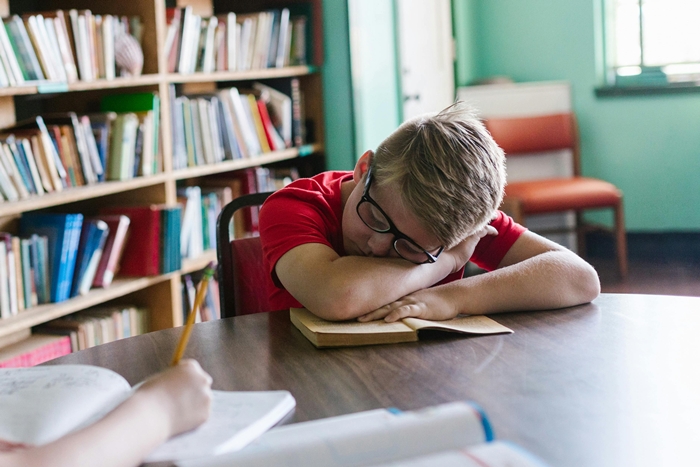Sleep plays a fundamental role in cognitive development, memory retention, and overall academic performance. Despite its importance, many students compromise on sleep due to academic pressure, digital distractions, and irregular schedules. Understanding the relationship between sleep and learning can help students, parents, and educators create better routines for enhanced academic success. The Science Behind Sleep...
BlogHow Sleep Impacts Learning and Academic Performance

Sleep plays a fundamental role in cognitive development, memory retention, and overall academic performance. Despite its importance, many students compromise on sleep due to academic pressure, digital distractions, and irregular schedules. Understanding the relationship between sleep and learning can help students, parents, and educators create better routines for enhanced academic success.
The Science Behind Sleep and Learning
Sleep is not just a state of rest; it is an active process where the brain consolidates information and strengthens neural connections. During different sleep stages, particularly deep sleep and REM (Rapid Eye Movement) sleep, the brain processes and stores knowledge acquired throughout the day. Lack of adequate sleep disrupts this process, leading to reduced attention span, poor memory retention, and decreased problem-solving skills.
Stages of Sleep and Their Role in Learning
The sleep cycle consists of multiple stages, each contributing differently to cognitive functions:
| Sleep Stage | Function in Learning |
| Non-REM Stage 1 & 2 | Light sleep, transitions the brain into deeper sleep, initial memory processing |
| Non-REM Stage 3 | Deep sleep, essential for memory consolidation and physical restoration |
| REM Sleep | Enhances creativity, problem-solving, and emotional processing |
If students fail to complete these sleep cycles, they wake up feeling groggy, unfocused, and less capable of absorbing new information.
Effects of Sleep Deprivation on Academic Performance
Chronic sleep deprivation can have serious consequences on a student’s ability to learn effectively. Studies indicate that students who get insufficient sleep exhibit:
- Reduced Concentration – Sleep deprivation weakens attention span, making it harder to focus in class.
- Impaired Memory – Without adequate sleep, information retention declines, affecting exam performance.
- Lower Problem-Solving Abilities – Sleep is crucial for critical thinking and decision-making skills.
- Increased Stress and Anxiety – Lack of sleep raises cortisol levels, leading to heightened stress and difficulty managing academic workload.
- Poor Physical Health – Sleep is linked to immune function, and inadequate rest makes students more susceptible to illnesses, causing frequent absences from school.
How Much Sleep Do Students Need?
The recommended sleep duration varies with age, and students in different academic stages require specific amounts of sleep for optimal performance.
| Age Group | Recommended Sleep Duration |
| 6-12 years | 9-12 hours per night |
| 13-18 years | 8-10 hours per night |
| 18+ years (college students) | 7-9 hours per night |
Unfortunately, many students fall short of these guidelines due to late-night study sessions, screen time, and social activities.
The Role of a Consistent Sleep Schedule
Maintaining a regular sleep schedule is as important as getting enough sleep. Irregular sleep patterns, such as sleeping late on weekends and waking up early for school, can lead to “social jet lag,” where the body struggles to adjust. This results in daytime drowsiness and inconsistent cognitive function. A consistent bedtime and wake-up time help regulate the body’s internal clock, improving alertness and learning efficiency.
Tips to Improve Sleep for Better Learning
Ensuring quality sleep requires conscious efforts to build healthy habits. Some effective strategies include:
- Establishing a Night Routine – A relaxing pre-sleep routine, such as reading or meditation, helps signal the brain that it is time to rest.
- Reducing Screen Time Before Bed – The blue light from screens suppresses melatonin production, making it harder to fall asleep. Avoid screens at least an hour before bedtime.
- Creating a Sleep-Friendly Environment – A dark, quiet, and comfortable room enhances sleep quality. Investing in a good mattress and pillow also makes a difference.
- Limiting Caffeine Intake – Beverages like tea, coffee, and energy drinks should be avoided in the evening as they interfere with sleep.
- Managing Academic Stress – Overloading with study sessions before bed increases anxiety and disrupts sleep. Breaking study schedules into smaller sessions earlier in the day is more effective.
Napping: A Helpful or Harmful Habit?
Short naps of 20-30 minutes can help refresh the brain and improve focus. However, long or irregular naps in the evening can interfere with nighttime sleep. If a student feels excessively drowsy during the day, a quick power nap can boost alertness, but relying on naps instead of proper nighttime sleep is counterproductive.
The Connection Between Sleep and Exam Performance
Many students believe that staying up late to study before an exam will improve their performance. However, research suggests that sleep-deprived students perform worse than their well-rested peers. Sleep enhances recall, logical reasoning, and mental clarity—key factors in tackling complex exam questions.
Sleep is a vital but often neglected factor in academic success. A well-rested student is more focused, retains information better, and handles stress efficiently. Schools and parents must emphasise the importance of sleep hygiene, ensuring that students balance their study schedules without compromising rest. By prioritising sleep, students can enhance their cognitive abilities, leading to improved academic performance and overall well-being.